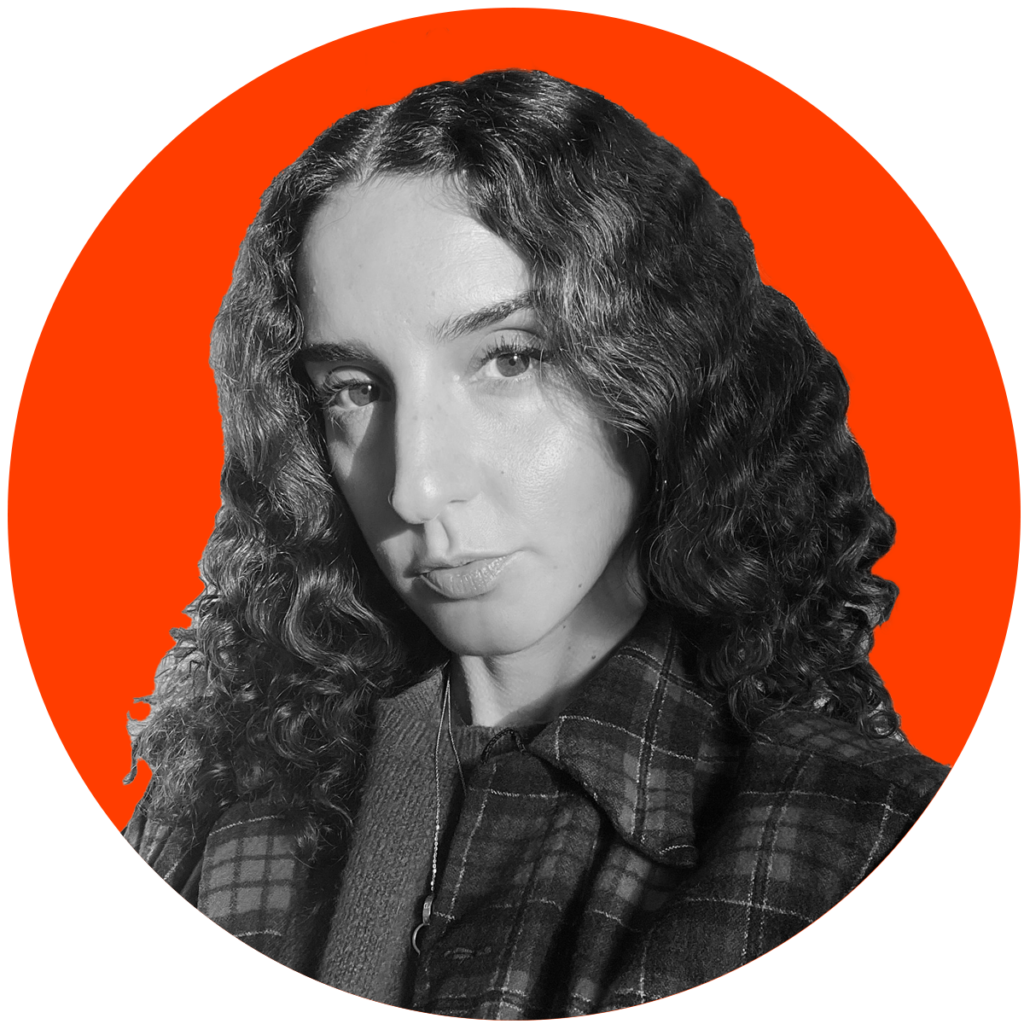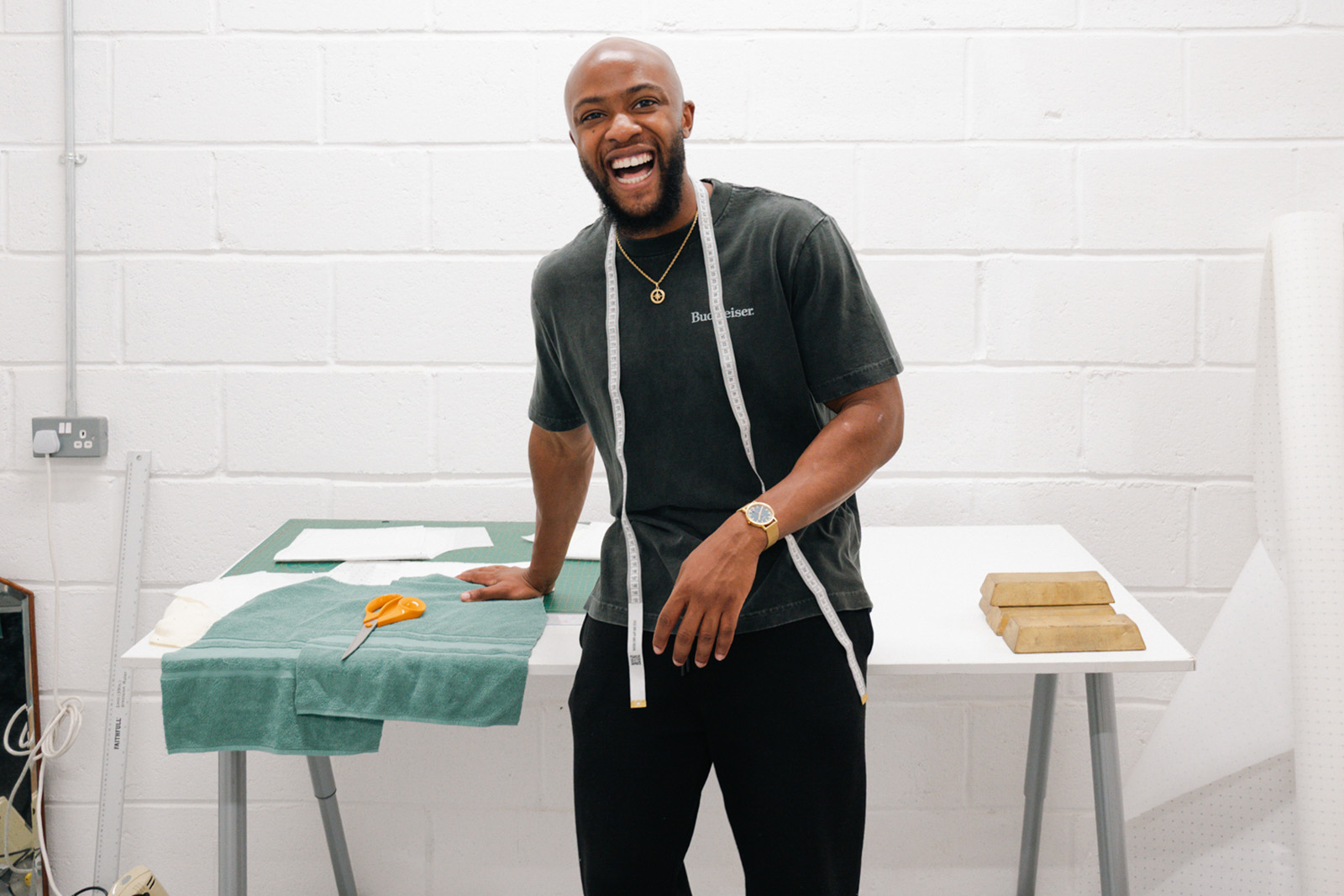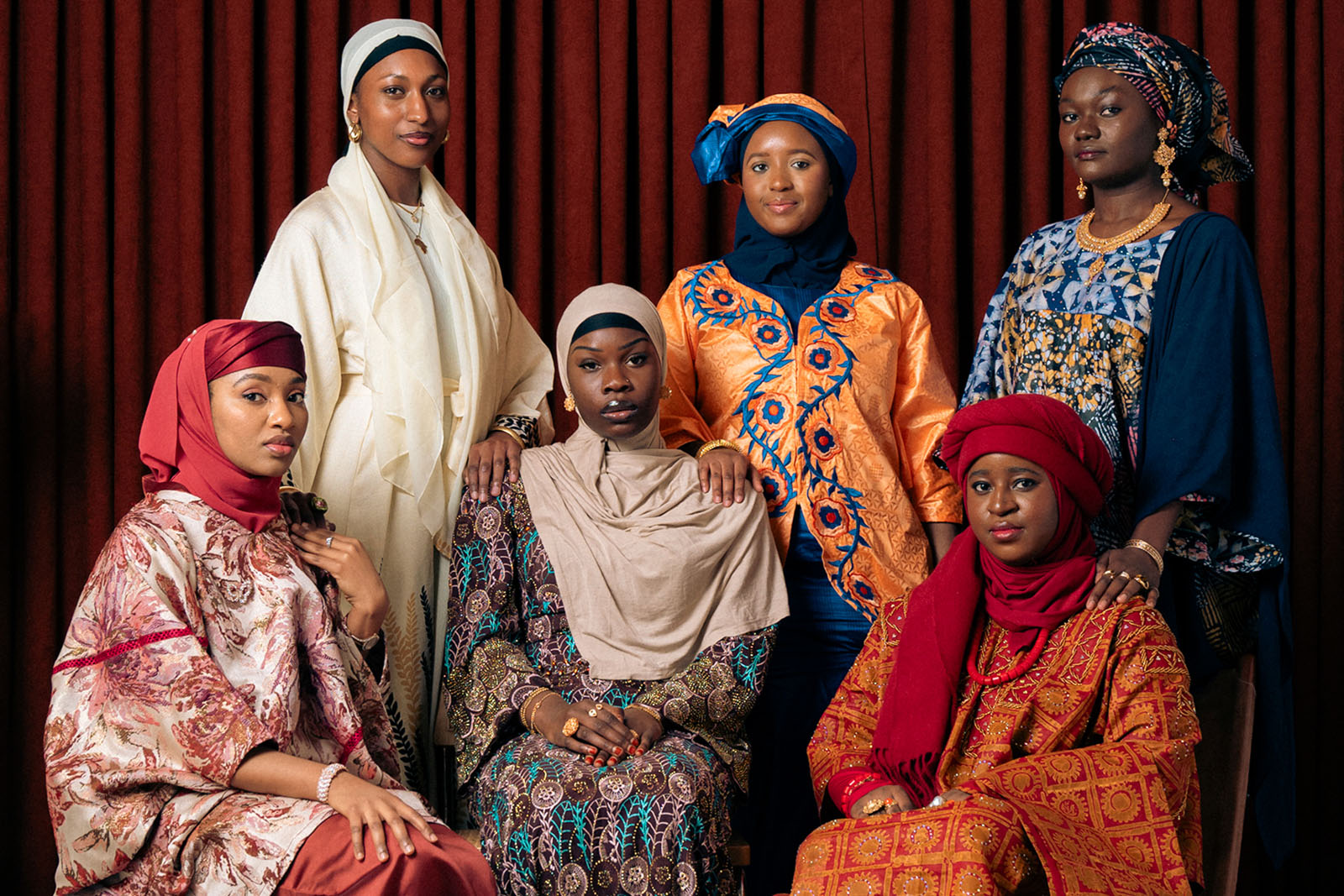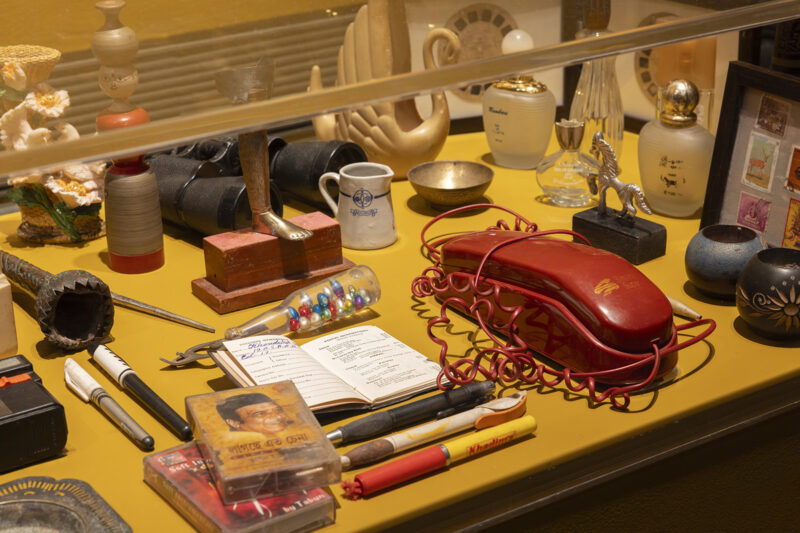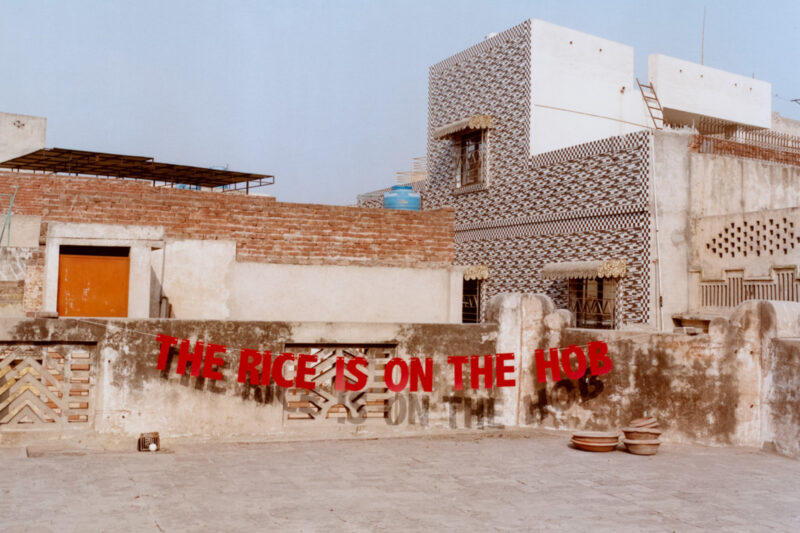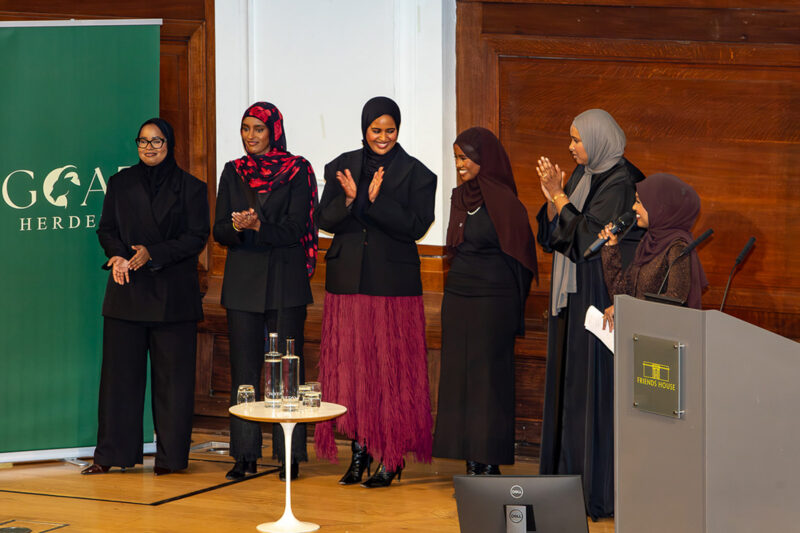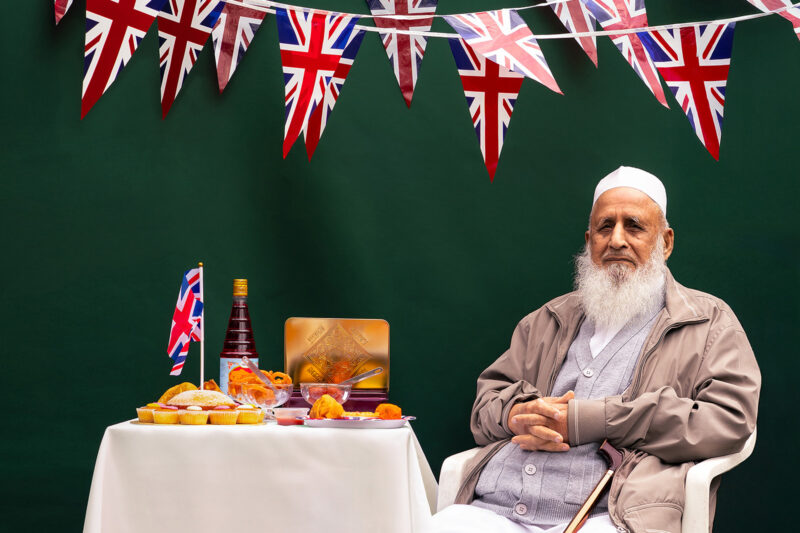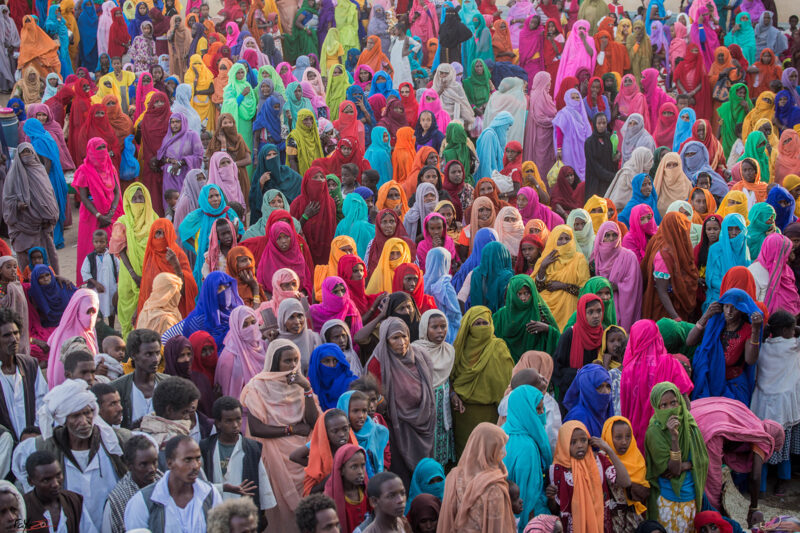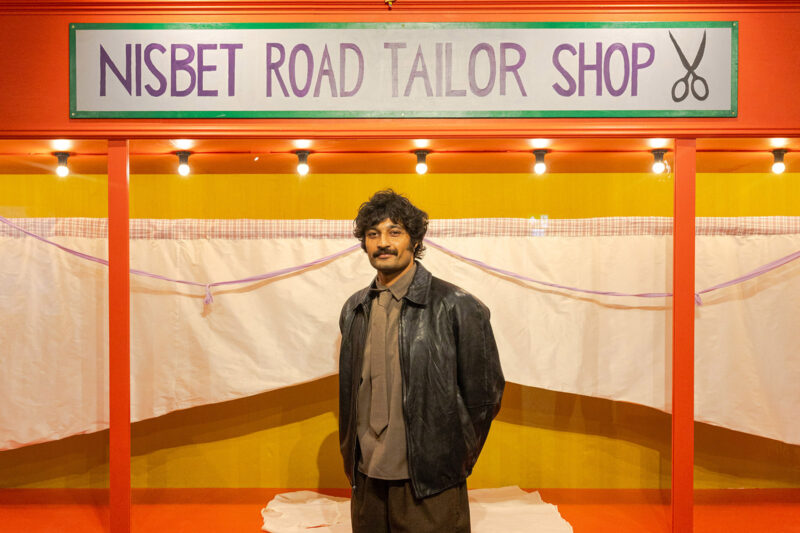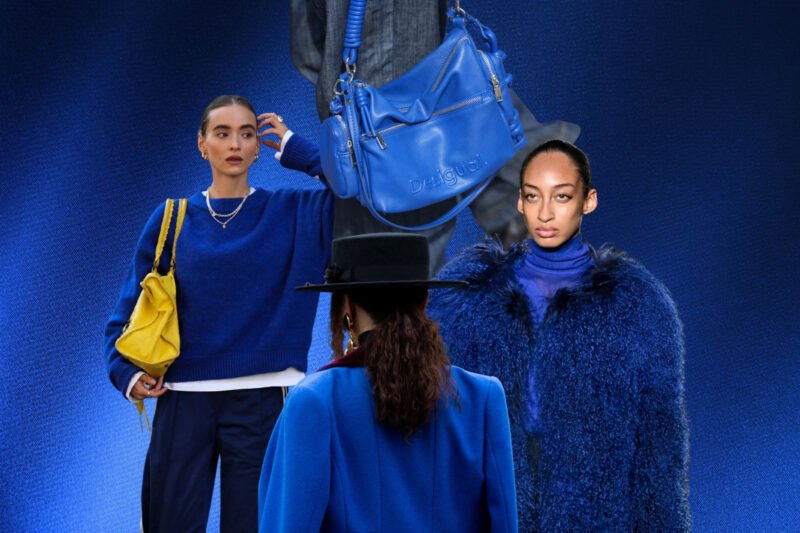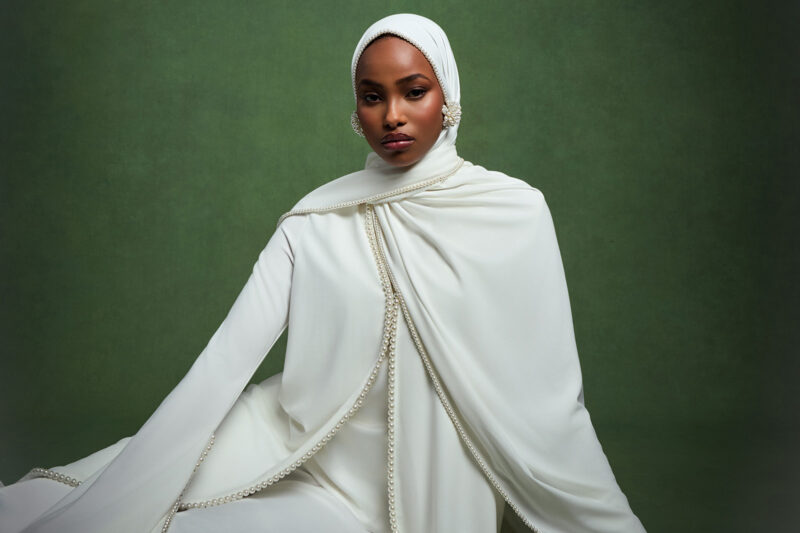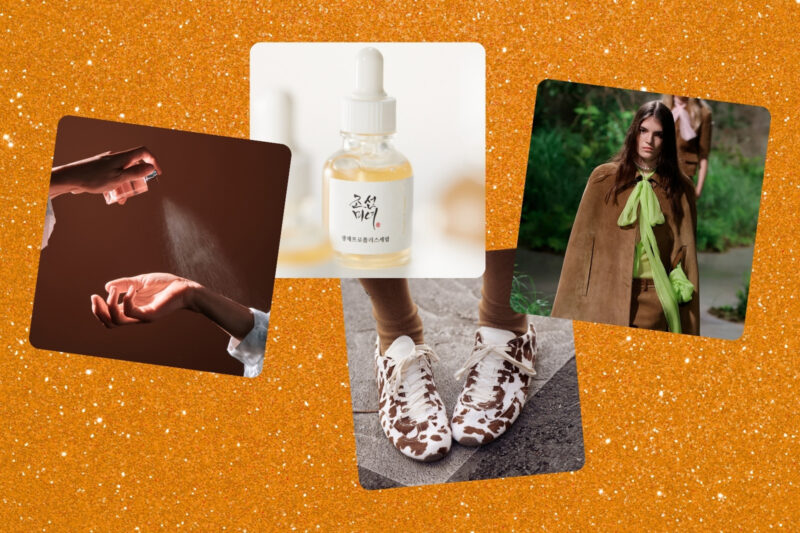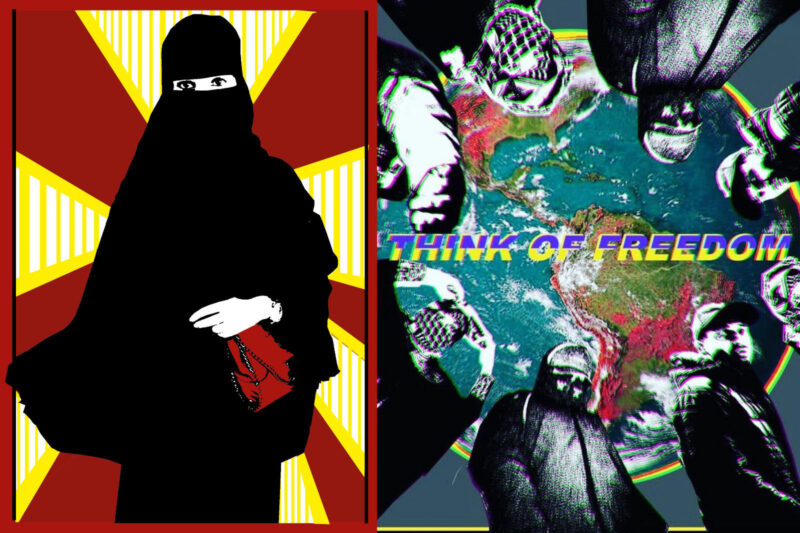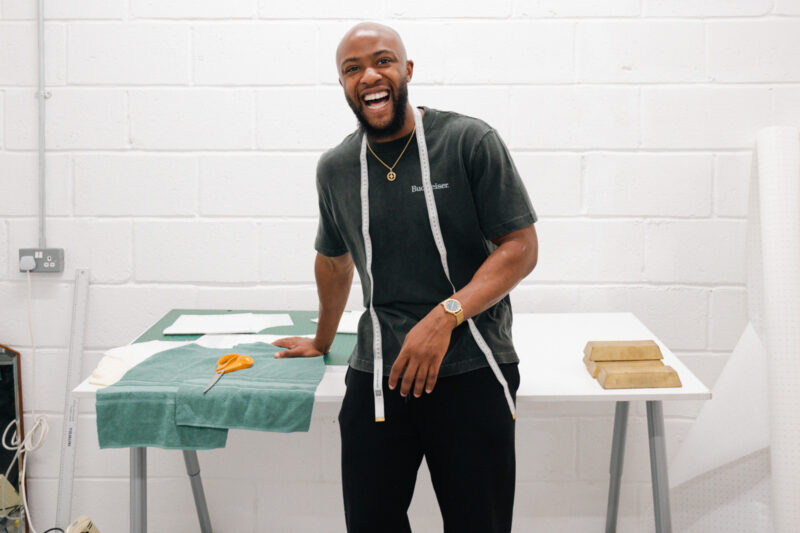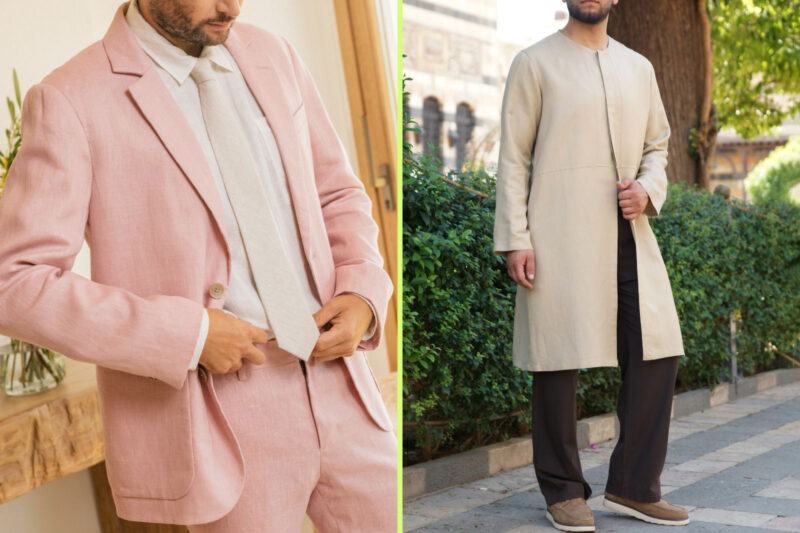Meet DIJÁGO: the Afro-Asian brand redefining luxury slow fashion
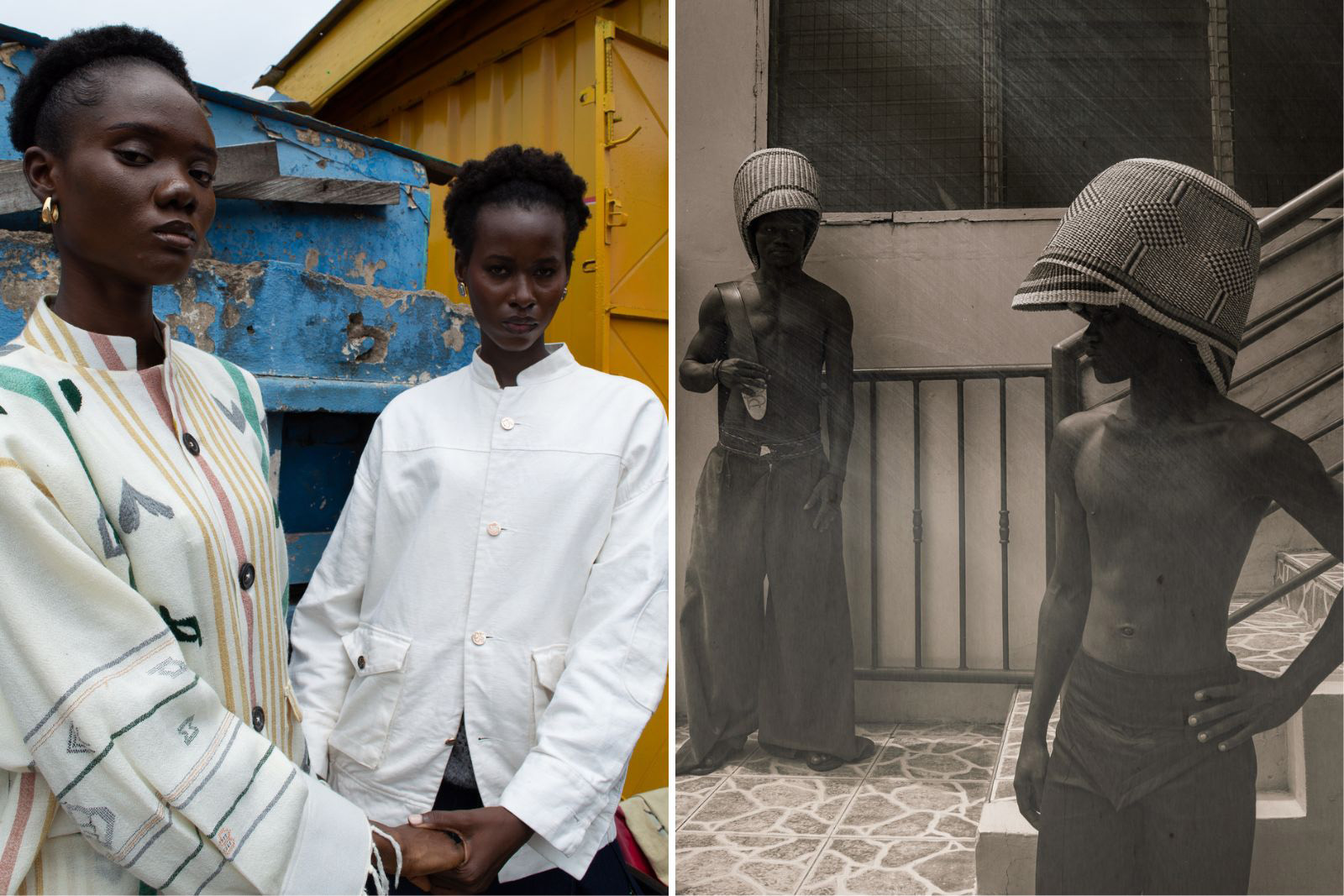
As London Fashion Week begins, we speak to the designers behind the brand fusing their two cultures
DIJÁGO سٹوڈيو (studio) is an Afro-Asian luxury brand redefining the meaning of British fashion. It’s designed and manufactured in London, constructed with Zambian cotton from regenerative farms, and finished with hand embroidery by artisans in the mountains of Pakistan.
As London Fashion Week (LFW) begins, the core showcases are running alongside the City Wide Celebration, a curated programme spotlighting the cultural and geographic roots of some of Britain’s most celebrated designers including Kazna Asker, Matty Bovan and Nadine Merabi.
Many of the events are focused on sustainability, as well as celebrating the influence of British designers outside of London. As part of the programme, DIJÁGO will be presenting new pieces online that focus on local craftsmanship, such as a jacket featuring designs printed with hand-carved wooden blocks.
Co-founded in 2022 by Khudija Zaib Lughmani and Gracey Owusu-Agyemang, DIJÁGO combines their love of luxury and timeless elegance with their interest in nature and slow fashion.
Zaib Lughmani is a fashion designer from Pakistan who specialises in textiles craftsmanship. Owusu-Agyemang is a designer of Ghanian-Namibian heritage born in Zambia. They are both now based in London, but have spent much of this year travelling between and exploring each others’ home countries and cultures.
The pair met while studying fashion design at Regent’s University London, and discovered how their fashion sensibilities and strengths complemented each other. They founded the brand immediately after graduating.
“Afro-Asian styles are a lot more similar than they are different,” says Owusu-Agyemang. “Our general ethos, ideas of taste and quality are the same. That’s the string that holds, and then our creative differences mix together to create the fusion.”
“The world sees it as two different cultures, but when you go deeper you see the similarities,” adds Zaib Lughmani. “We’re trying to focus on those similarities — in our food, in music, in culture — and narrate them into fashion and storytelling.”
Owusu-Agyemang says her strength lies in digital and graphic work, and describes herself as the “maximalist” of the duo in terms of sensibility. Zaib Lughmani, meanwhile, is the practical realist who brings her ideas back down to the realm of possibility with her detailed knowledge of textiles and pattern-making.
“I’m very minimalist — I like taking something simple and working with that. That’s what elegance means to me,” says Zaib Lughmani.
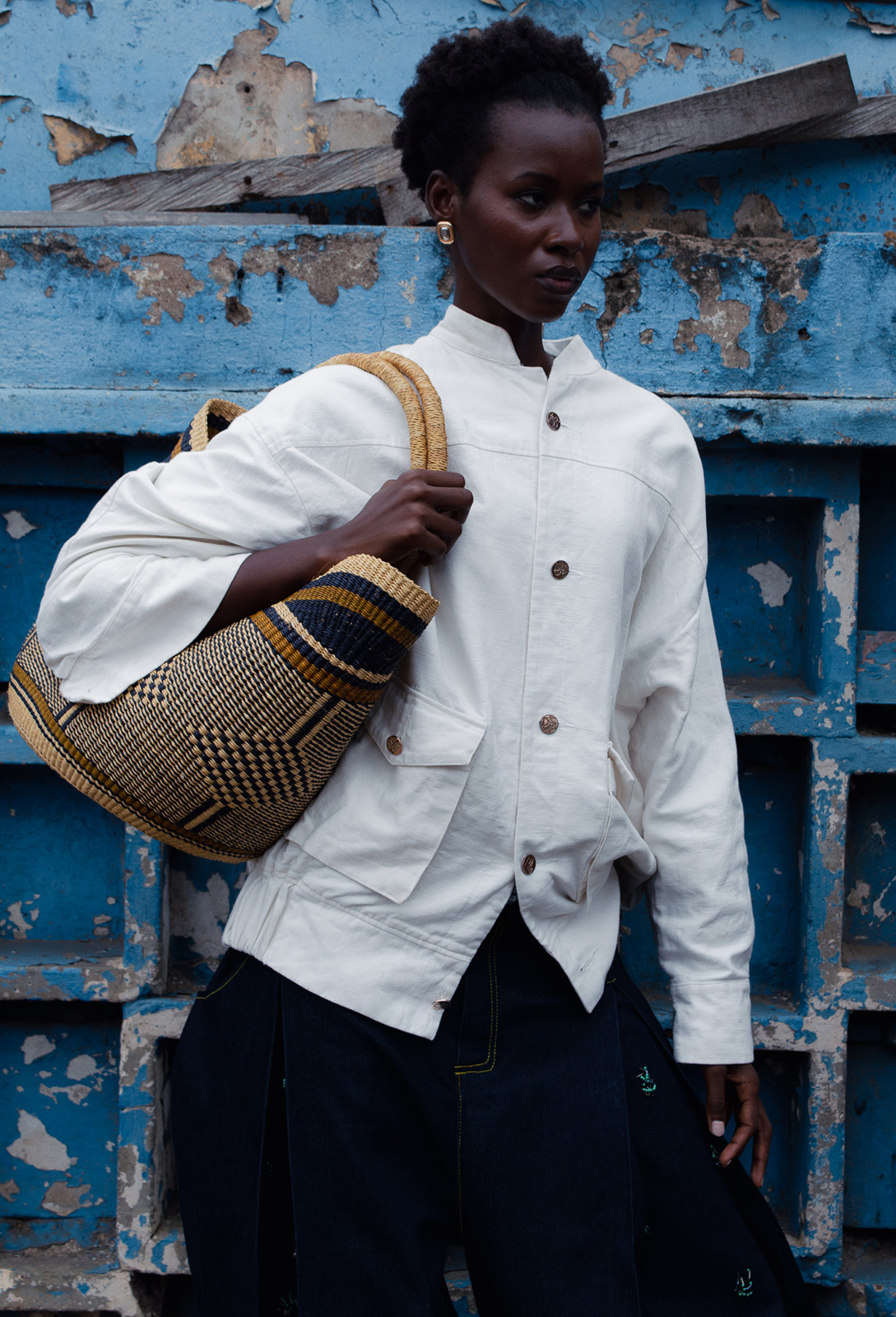
Their debut collection, Badlav in February 2023 introduced the fashion world to their dynamic draping in pieces such as the military-inspired wax cargo skirt and sculptural top, which sold out three days after they launched. The clothes are a sartorial testament to the synchronicity of their two cultures: a fusion of the serene mountains of Peshawar and the eclectic streets of Accra.
As a brand, DIJÁGO centres on “timeless, luxurious, and comfortable staple pieces” and a commitment to eco-conscious, regenerative fashion. They use compostable and surplus materials, such as handmade copper clay buttons, sustainably sourced zippers and wood cellulose threads.
The entire undertaking — from growing natural fibres, ensuring fair wages, to using traditional natural dyeing techniques — is redefining the concept of slow, luxury fashion, a belief that’s at the heart of the project.
The duo only design a handful of new pieces every year and produce solely bespoke items on demand. Their DIJÁGO chappals, for example, are made from dead-stock leather and crafted by the hands of artisans from Baffa, the small mountain village that Zaib Lughmani comes from.
“Sustainability has always been embedded in our cultures. We’re both from third-world countries, and it’s the cycle in which everything is done, from how materials are sourced to what we eat,” says Owusu-Agyemang. “We are sustainable from the soil up, everything is done with nature. We allow the wildflowers and weeds to grow, don’t use pesticides, and the cotton is rain-fed.”
Owusu-Agyemang’s designs are inspired by Afrofuturism — a movement that blends Black history and culture with elements of science fiction and fantasy to imagine a liberatory future.
Nature itself also acts as an inspiration: “A lot of the artisans we work with, they weave sitting outside and get inspired by the trees and leaves and flowers they have around their house,” says Zaib Lughmani. “When we ask them to design something, we let them freehand the embroidery from whatever they are inspired by in their surroundings.”
Their collections make use of ancient Ghanaian symbols and traditional Pakistani embroidery techniques, and translate them into more modern forms of garment design. Symbols are laser-etched onto their leather affirmation jacket, and stitching techniques usually used on Pakistani hand-made artisanal blankets are reworked on wide trouser legs.
Their commitment to sustainability goes beyond their designs. DIJÁGO won’t be physically present at LFW this year because they are currently in Zambia taking part in a mentorship initiative for emerging fashion designers alongside Move on Zambia, teaching traditional practices such as natural fabric dyeing. The pair have also set up the DIJÁGO Foundation, a philanthropic effort to financially support the women they work with who face limitations due to familial responsibilities and cultural barriers.
Much like their design process, the work being done behind the scenes by the two women is slow, purposeful and intentional. “The same way brands collaborate, this is basically an ongoing, long-lasting collaboration of two cultures together,” says Zaib Lughmani. “We’re building our universe.”
 Newsletter
Newsletter

